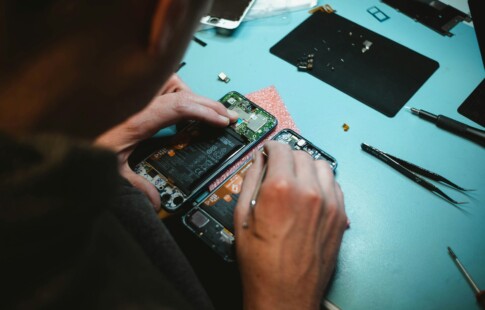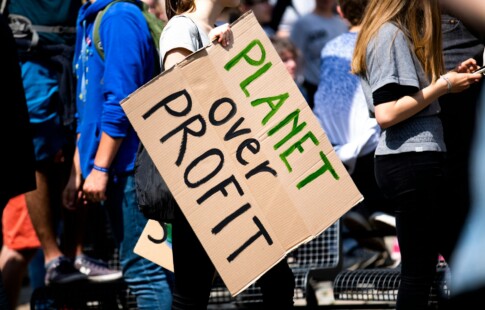
Top 12 Environmental Startups of 2024
We are reader-supported. When you buy through links on our site, we may earn affiliate commission.
Staying tuned in with what’s happening concerning environmental startups can help you see what’s coming down the pipeline and feel hopeful about the future. Here are 12 environmental startups to keep an eye on in 2020 and beyond.
1. Arcadia
Arcadia is an environmental startup based in the District of Columbia. It offers software to help residential utility customers find their best clean energy options based on where they live and what’s available in those markets. It recently raised $30 million in Series C funding and reportedly has hundreds of thousands of customers even in these early stages.
2. Crisp
Food waste causes a range of adverse environmental impacts, like reduced biodiversity and increased methane emissions. Fortunately, some environmental startups are making strides in cutting down on uneaten food. One of them is Crisp, a company that sells demand-forecasting software that allows food suppliers or restaurants to input all their information from various sources. Then, a data-analysis component helps identify trends and eliminate guesswork, giving suppliers or retailers a better idea of how much food is needed at a given location.
3. Industrial Phycology
This startup specializes in sustainable and eco-friendly wastewater treatment solutions. The United Kingdom-based business has a chemical-free solution that relies on microalgae to get results. This method reduces pollutants, and it facilitates recovering biomass for later use in biogas or fertilizer. The company is building its team in Birmingham, England, and hopes to make its first commercial sale soon.
4. Meatable
If you’ve been an avid reader of at least a few of the top green tech blogs recently, you’ve undoubtedly heard about the exciting progress happening with cultivated meat. Lab-created food could allow people to chow down on burgers without feeling guilty or making the switch to a vegetarian or vegan diet. This pioneering kind of meat should cut down on emissions, plus reduce the instances of animal slaughter for food. Meatable is a company working in the cultured meat space, and it says its entire creation process only takes about three weeks. It starts by taking a cell sample from a live cow or pig that’s unharmed during the endeavor. Also, the company does not use any antibiotics, and it says its method saves water and trees compared to conventional cattle or pig-raising practices.
5. Biome Makers
Biome Makers is a California startup fighting climate change with healthier soil. The company utilizes a database of 24 million microorganisms and machine learning to optimize soil nutrition for robust yields. The BeCrop Test informs farmers of soils’ biological makeup and areas in which they can improve it.
In one case study using BeCrop, a Napa Valley vine grower discovered a disease risk that affected soil bioactivity and reduced productivity. Tailoring best practices to enhance the soil and increase harvest results in $540 savings per acre and a 170% return on investment.
6. Sunday
Most people love the look of a vibrant, lush lawn, but they aren’t as crazy about the time and money required for upkeep. Sunday is a startup offering “lawn in a box” subscriptions of custom nutrients to help grass look great. Sunday says many of the ingredients it uses are also relied upon by organic farms. Sunday’s approach lets people cut down on conventional pesticides and investigate organic weedkillers. Plus, a percentage of sales go toward tallgrass prairie restoration.
7. XD Consulting
Remember the last time you were inspired by a green living blog and decided it was time to become more sustainable, but weren’t sure how or where to start? Many people have that experience because of a combination of good intentions and a lack of specialized knowledge. XD Consulting is a startup based in Cork, Ireland, that aims to help.
It uses various data sources and analytics to predict how to upgrade a home in the most eco-friendly, energy-efficient way. Besides helping customers proceed with renovations, the company wants to help tackle fuel poverty, which occurs when people spend at least 10% of their disposable income on home heating costs.
8. Solarkiosk
As you might guess from the name, this company specializes in solar-powered mobile units for businesses. It boasts a Power Core that enables users to get electricity and even Wi-Fi without connecting to the grid. The latest model of the company’s kiosk has only 10 pieces, and people can build it in as only one to two hours.
9. AMP
AMP — formerly AMP Robotics — developed technology for recycling facilities that blend robotics and artificial intelligence. The company raised $16 million in Series A funding near the end of 2019, which suggests investors are eager to support the business and help it grow. AMP offers modular technology, making it simple to implement into existing facilities. Moreover, the equipment is safer and more efficient than conventional options.
Examples of AMP’s technology include a compact robotics system called Cortex-C and Vortex, a mechanism that recovers film and plastic packaging. Following its rebranding in early 2024, AMP hopes to carry out discussions about waste flow solutions across landfill facilities, packaging companies, petrochemical companies, and local governments.
10. DOT
The logistics industry continually aims to reduce its emissions, and DOT, an Indian startup, has a solution. It provides first- and last-mile delivery solutions courtesy of electric-powered bikes and cargo vans. DOT also offers a customer-facing arm, helping people book electric bikes via an app. DOT currently operates in 24 Indian cities. It counts McDonald’s, Amazon and Walmart among its clients, and the company seems poised for future success due to how it aims to solve a pressing need.
11. MPOWERD
The number of people with access to electricity is decreasing. From 2000 to 2023, 746 million people couldn’t turn the lights on worldwide, with Asian regions dropping 90%. One environmental startup is looking to change that.
MPOWERD has partnered with 700 nonprofit organizations to provide clean solar lighting to populations in need. According to the company’s impact sheet, MPOWERD has positively affected 4.3 million people across more than 90 countries, averting 3.1 million tons of carbon dioxide.
12. Coral Vita
Coral Vita is on a mission to save the world’s coral reefs. This marine conservation startup established the first land-based coral farm in 2019, harvesting 24 coral species and expediting growth by 50%. Innovative technology helps build resilience against climate change, with promising results for survival after outplanting. Coral Vita also delivers educational opportunities to the public, allowing them to learn more about the world’s reefs and adopt a piece of coral.
Environmental Startups Worth Watching
Being aware of environmental startups like the ones listed here will help you stay abreast of the technological solutions that could have major and positive impacts on the planet. The companies listed here aren’t the only ones deserving of attention, but they’ll offer a fascinating introduction to what to expect in 2020.
This post was updated on April 24, 2024 to provide more current information.
Share on
Like what you read? Join other Environment.co readers!
Get the latest updates on our planet by subscribing to the Environment.co newsletter!
About the author

Jane Marsh
Starting from an early age, Jane Marsh loved all animals and became a budding environmentalist. Now, Jane works as the Editor-in-Chief of Environment.co where she covers topics related to climate policy, renewable energy, the food industry, and more.





